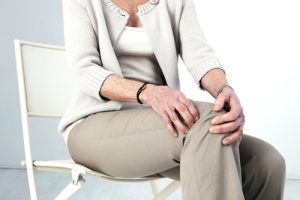
Our joints are an important part of living. They allow us to walk and run, hold and toss objects, and enjoy all of our favorite activities. But when they start to hurt, they can take the joy out of life.
It may begin with your knees, the cracking, the stiffness, just getting up from your seat can be a struggle. Or maybe it’s in your hands, and just holding a book to read becomes difficult. You may think this is a normal part of aging, but it doesn’t have to be.
Joint pain and even osteoarthritis can be avoided – and it just takes a few easy steps to keep you, and your joints, going strong.
Take 10 minutes a day
No matter your age, if you’re concerned about developing joint pain or osteoarthritis, you can still help prevent it with a quick 10 minutes a day.
Research published in the journal Arthritis Research and Therapy followed a group of women over the course of three years. These women were 70 years or older and arthritis-free when the study began. Each week the women completed up to 75 minutes of exercise – about 10 minutes a day.
RELATED READING: Why osteoporosis isn’t just for women anymore
The researchers found this amount of exercise cut the women’s risk of joint pain by 28 percent. Some of the women completed more exercise weekly in which the researchers concluded that two-and-a-half hours of exercise a week can cut the risk of joint pain by 50 percent.
By staying active, you are keeping your joints lubricated which keeps them moving with ease. Ideally the researchers suggest 30 minutes a day for optimal joint health.
Although age can take a toll on your bones and cartilage, causing them to become more brittle and weaker, exercise keeps them strong. As long as you have clearance from your doctor, start making exercise a regular habit. The Mayo Clinic encourages range of motion type exercises – rolling your shoulders, raising your arms above your head – as well as strength training with light weights. Aerobic exercise, such as walking, along with yoga and tai chi also are effective exercises for seniors.
Keep your weight in check
The Arthritis Society reports that for every pound you gain you are adding an additional six pounds of stress to your joints. Therefore, if you are a little bit on the heavier side, you’re already creating problems for your joints.
Being overweight increases your risk of developing arthritis and requiring some form of joint replacement surgery. The Obesity Action Coalition estimates that 27 million Americans are diagnosed with osteoarthritis due to obesity, making weight loss a top priority to protect your joints. Losing just 11 pounds, if you’re overweight, can cut your risk of developing arthritis in your knees by 50 percent, experts say.
If you are in the overweight range and find it difficult or painful to exercise, start in a pool so there is less strain on your joints. Swimming a few laps or a gentle water aerobics class will get you moving. Diet also plays a huge role in weight loss, so you need to examine what you’re eating and consider help from a dietician or naturopath.
RELATED READING: When your pain gets really bad…
Watch the way you move
You may carry groceries, sit at a desk or even stand for long periods of time, not even paying attention to how you are doing these tasks. But your posture and the way you move throughout your day are definitely two aspects to keep your eye on if you want to keep your joints pain-free.
Whenever you carry or lift an object, make sure the load is close to your waist which is your center of gravity. Lift from your knees and avoid straining your back.
When sitting at a desk, keep your elbows and knees comfortable at a 90 degree angle and make sure the chair supports your back. Also, keep your shoulders back and relaxed so you won’t strain your neck.
For those more physical activities, avoid too much repetition. The more you complete the same motion using the same joints, the quicker they can wear out. Another important tip is always remember to stretch, even if you haven’t exercised. Stretching can increase mobility, flexibility, and prevent stiffness. A lubricated joint works much more efficiently than a stiff one!
If avoiding joint pain and arthritis is on your list for a long and healthy life, these tips will go a long way to keep you and your joints moving well.